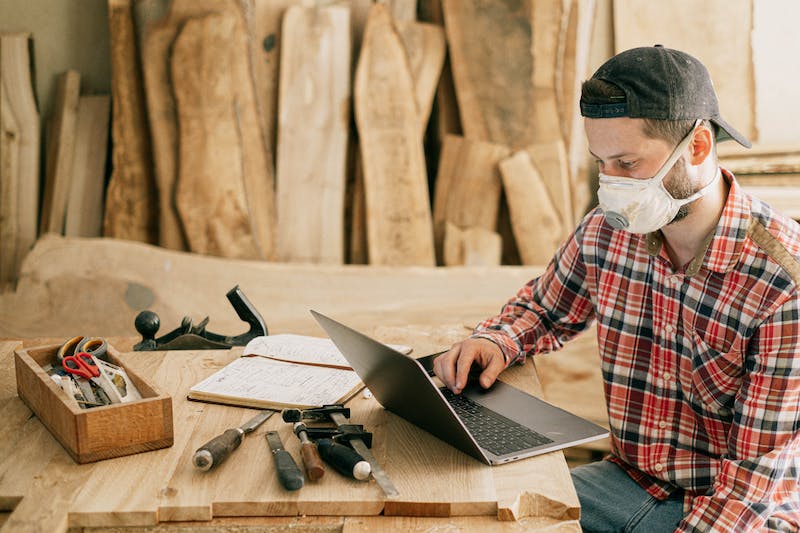Embarking on a home improvement project is an empowering endeavor. It enables you to take control, infuse creativity, and instill a piece of your character into your living space. However, these DIY adventures also bring along certain risks. Thankfully, with the right safety equipment, many of these hazards can be significantly mitigated. This article provides an extensive list of safety equipment for different types of hazards during home improvement projects.
General Protective Equipment
Every home improvement project should start with outfitting yourself with basic safety gear. This includes:
Safety Glasses or Goggles: Protect your eyes from flying debris, dust, paint splatters, and more. Look for ANSI-rated glasses for optimum protection.
Work Gloves: Protect your hands from sharp objects, rough materials, and potential blisters. Opt for gloves that provide a good grip and are suitable for the specific task.
Work Boots or Shoes: Safeguard your feet from falling objects and sharp items. Choose footwear with steel toes, non-slip soles, and puncture-resistant material.
Workwear: Choose sturdy, well-fitting clothing that’s suitable for the task. Avoid loose clothing that could get caught in machinery.
Hard Hat: If there’s any risk of falling objects, a hard hat can protect your head from injury.
Ear Protection: For noisy tasks like drilling or sawing, earplugs or earmuffs can protect your hearing.
Fall Protection Equipment
If your project involves working at height, investing in the right fall protection equipment is critical.
Safety Harness: A full-body safety harness is a must-have for any work at heights. It’s designed to distribute the force of a fall across your body to minimize injury.
Lanyards and Lifelines: These attach your harness to a secure anchor point. Some have a shock-absorbing feature to further reduce the impact of a fall.
Anchor Points: These are secure points to attach your harness. Make sure they’re rated to handle the weight and force of a potential fall.
Guardrails and Safety Nets: If possible, installing these can provide additional safety when working at heights.
Ladder Safety Accessories: These include ladder stabilizers and anti-slip devices.
Fire Protection Equipment
If you’re dealing with flammable materials or sources of heat, fire protection equipment is essential.
Fire Extinguisher: A multipurpose fire extinguisher should be readily accessible in your work area.
Fire Blanket: This can smother small fires quickly.
Heat-Resistant Gloves: These can protect your hands when dealing with hot objects or surfaces.
Chemical and Respiratory Protection
Many home improvement projects involve exposure to chemicals, dust, or fumes. Protect your respiratory system with:
Respirators: Different types of respirators offer protection against dust, fumes, and harmful particles. Select a respirator based on the specific task.
Disposable Masks: These provide basic protection from dust.
Chemical-Resistant Gloves and Clothing: Protect your skin from direct contact with harmful substances.
Ventilation Equipment: Portable fans, exhaust fans, or an air filtration system can help maintain good air quality.
Electrical Safety Equipment
If your project involves electrical work, certain equipment can reduce the risk of electrical shocks and burns:
Insulated Tools: Tools with insulated handles provide an extra layer of protection.
Voltage Tester: This tool can confirm whether a wire or device is live.
Rubber Matting: Standing on a rubber mat can reduce the risk of grounding and electrical shock.
Circuit Breaker: Always use a circuit breaker to cut off the power in the event of a surge or short circuit.
Emergency Preparedness
Despite all the precautions, accidents can still happen. Be prepared with:
First Aid Kit: A well-stocked kit should include bandages, antiseptic wipes, tweezers, medical tape, sterile gauze pads, and pain relievers.
Eye Wash Station: If your eyes are exposed to harmful substances, an eye wash station can help rinse them out immediately.
Conclusion
Remember, the right safety equipment can significantly reduce the risk of injury during home improvement projects. However, if a project involves significant risks or if you’re unsure about performing it safely, it’s always best to hire a professional. Your safety is always worth the investment. Happy renovating!

